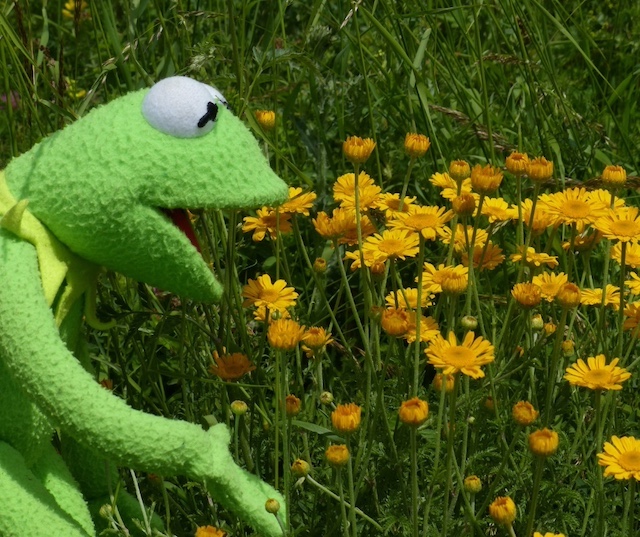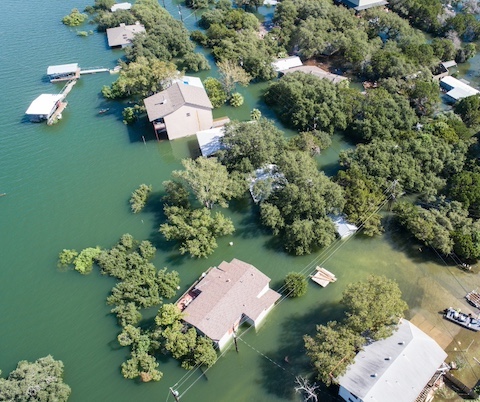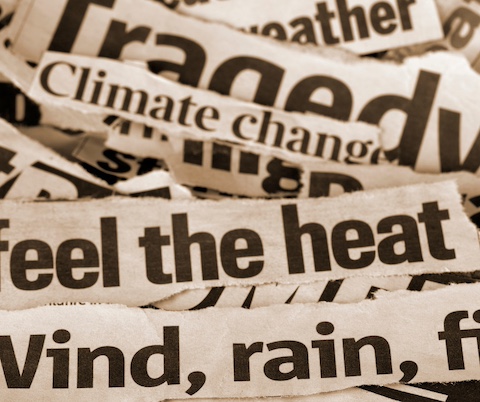Kermit said, “It’s not easy being green.” Indeed, it must be difficult to be a frog. Hatching from an egg underwater into a plump tadpole with tiny arms, no legs, and a wiggling tail probably is a welcome sight to a long list of potential predators. Then as with other amphibians they transform gills to lungs for life giving oxygen. Being cold blooded also has its challenges in finding comfortable surroundings. Then add the fact that they can absorb toxins through their skin which makes survival quite a feat in a world with humans. But they also can turn into a prince with just a kiss.
Ecology
The world around us has been evolving for billions of years. The biological, chemical and physical relationships that have been developed are highly complex. Ecology, a branch of biology, is the study of the interactions between biotic (living) and abiotic (non-living) components in the environment. Some of these systems are global in perspective, like the atmosphere and hydrosphere, while others are microscopic like the soil world. In a pinch of garden soil, millions of microbes can be living representing thousands of different species, from bacteria and fungi, to arthropods and more. https://www.snexplores.org/article/soil-and-its-inhabitants-by-the-numbers
Welcome to the Anthropocene
For the past few million years, humans have been working into these systems. Many recognize our new era as the Anthropocene. No other species has walked the Earth that could so extensively impact not just other local species, but entire global systems. And not just temporarily, but possibly permanently like glaciers, the tundra, and coral reefs. The climate chaos that we have created is unprecedented in its ecological impact. It is important to recognize this, but not healthy to be suffocated in guilt. Humans are relatively an infant species on our planet. We have limited knowledge and experience. We have made many mistakes. But as with many juveniles, we are in a period of potential rapid learning and growth.
Relationships
Some would say that the biological function of an organism is to perpetuate the population. This usually has limits. A simple predator prey relationship demonstrates that as the prey population grows, their primary predator’s population will too. As the prey population gets consumed, the predator population is reduced due to lack of their primary food. Very simply, it creates a balanced or sustainable system. A parasite however may kill its host and lose its source of nutrition. And there are symbiotic relationships where some species directly or indirectly benefit others like pollination relationships between insects and plants. The many relationships in nature are complex, and humans understand very few. Thus, we have much to learn, like how trees communicate as a community through a fungal root network.
Cicadas
And then there are the cicadas. We are on the cusp of a once every 200-year marvel. Many people recently traveled great distances to awe at the total eclipse. This time the cicadas have come to us. Hearing migration stories of whales and birds traveling thousands of miles to ancient locations brings amazement at how is that even possible. Cicadas are able to read a calendar that lasts 13 and 17 years which is written in root moisture levels. Then in the correct year being able to sense soil temperature to know when exactly to collectively emerge. And then the necessary maneuvering to mate and deposit eggs. And they utilize the strategy of maximization. Emerging in mass to sacrificially distract an array of predators so a few can successfully produce the next generation. Sacrificing individual success for the benefit of the community is an important lesson for our young species.
Recognizing Lessons
When their buzzing gets annoying, their physical ugliness seems offensive, or if you are feeling invaded, please pause to appreciate the incredible feat with which we have been gifted this lesson in living on this planet. The buzz of cicadas is not really any worse than the neighbor’s yard management equipment. And it is a song of purpose to attract a mate. Just as the snowstorm of cottonwood seeds stuck on window screens seems annoying, it is a reminder that we are part of the environment. We are actually the newbies on the block.
Beyond Natural Limits
As Kermit said, “It’s not easy being green.” Not being a frog, but blending with ones’ surroundings. Humans have been able to increase our population beyond natural limits by utilizing technology to increase the birth/death rate and agriculture production. These advances have come with costs to planetary health. But we are an intelligent species and have realized in some cases that putting the planet before profit is a necessary consideration. Maybe we can stop the war on weeds, insects, and our other neighbors. We have made great advances in reducing our negative environmental impacts but are distracted everyday by a capitalistic pursuit of personal convenience. We will need a cultural change on both an individual and community level.
Join Us in a Singalong
At Friends of the Fox River, we are building a watershed community of caretakers. Join us. Being green means harmonizing with the environment. See yourself as part of the green community?
Sing along with the cicadas.






